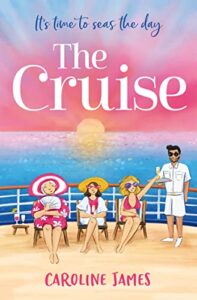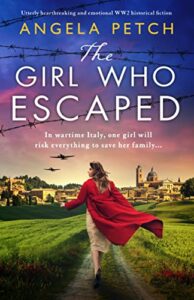The Forgotten Palace by Alexandra Walsh
A dual timeline based around Arthur Evans’ archaeological digs at Knossos on Crete, this book has an incredible sense of place, time and history. The heat and the dust from the excavations rise up from the page as the Victorian characters scrape in the earth and wash dirt from shards of pot.
In 1900 Alice departs on a grand tour of Europe accompanying her aunt and young nephews. She is heartbroken and in terrible disgrace, so her kindly family have sent her away to recover. In the present day timeline Eloise leaves for Crete on the day of her husband’s funeral wearing a red dress and red shoes. It’s clear she is glad he has gone – but why?
The book is packed full of history, myth, and dreams, with italicised sections which could be either of the latter, almost making it a triple timeline. But having read Alexandra Walsh’s other books I was not expecting this to be a simple love story and it is anything but.
A final word: don’t let the cast list at the front put you off – it really isn’t needed as all the main characters are so memorable.
The Cruise by Caroline James
 I am not a great reader of romantic comedy, but I really enjoy Caroline James’ books. Not just because the protagonists are ladies in their sixties having a fabulous time, but because everything about them and their adventures is so beautifully observed and the pathos and humour eased out.
I am not a great reader of romantic comedy, but I really enjoy Caroline James’ books. Not just because the protagonists are ladies in their sixties having a fabulous time, but because everything about them and their adventures is so beautifully observed and the pathos and humour eased out.
In The Cruise three single friends (one widowed, one almost divorced and the other resolutely single) decide to head to the Caribbean for Christmas. I loved the descriptions of the islands and it was wonderful to be back in a Barbados I recognised, albeit through the pages of a book. Anne, Jane and Kath, and the supporting cast of characters are bound to make you smile, so book your cabin now.
A Village in the Third Reich by Julia Boyd and Angelika Patel
I don’t often review non-fiction but I loved the premise of this book; to follow the life of a single village in Germany from the end of the First World War, and all through the Second.
It did not disappoint, and I would say it is essential reading for anyone interested in the era. It brings the human stories of the inhabitants of Oberstdorf in the Bavarian Alps to the fore, while setting them firmly in their social and political context. Whether dipping in and out, or reading from cover to cover, this in an exceptional history and meticulously researched.
The Girl Who Escaped by Angela Petch
 This book is Angela Petch at her best, with a purely historical narrative set in her beloved Italy during the Second World War. It’s a gripping tale that explores the plight of the Jewish community as fascism tightened its hold on the country, and the efforts of the Italian resistance to return their nation to the tolerant society it once had been.
This book is Angela Petch at her best, with a purely historical narrative set in her beloved Italy during the Second World War. It’s a gripping tale that explores the plight of the Jewish community as fascism tightened its hold on the country, and the efforts of the Italian resistance to return their nation to the tolerant society it once had been.
The Girl Who Escaped follows the stories of not only Italian Jew Devora, but her schoolfriends Luigi, a clandestine partisan, and Rico who may or may not be a collaborator. Their stories unfold and entwine, with Devora always centre stage as the world she has known crumbles around her when fascism begins to bite.
It’s an incredibly well researched book, so rich in detail that it absolutely transported me to Urbino during the Second World War, to circumstances that were at times so painful it was hard to read on. But, heart in mouth, I persevered, because I just had to know what happened. And that is the mark of a truly great storyteller.
